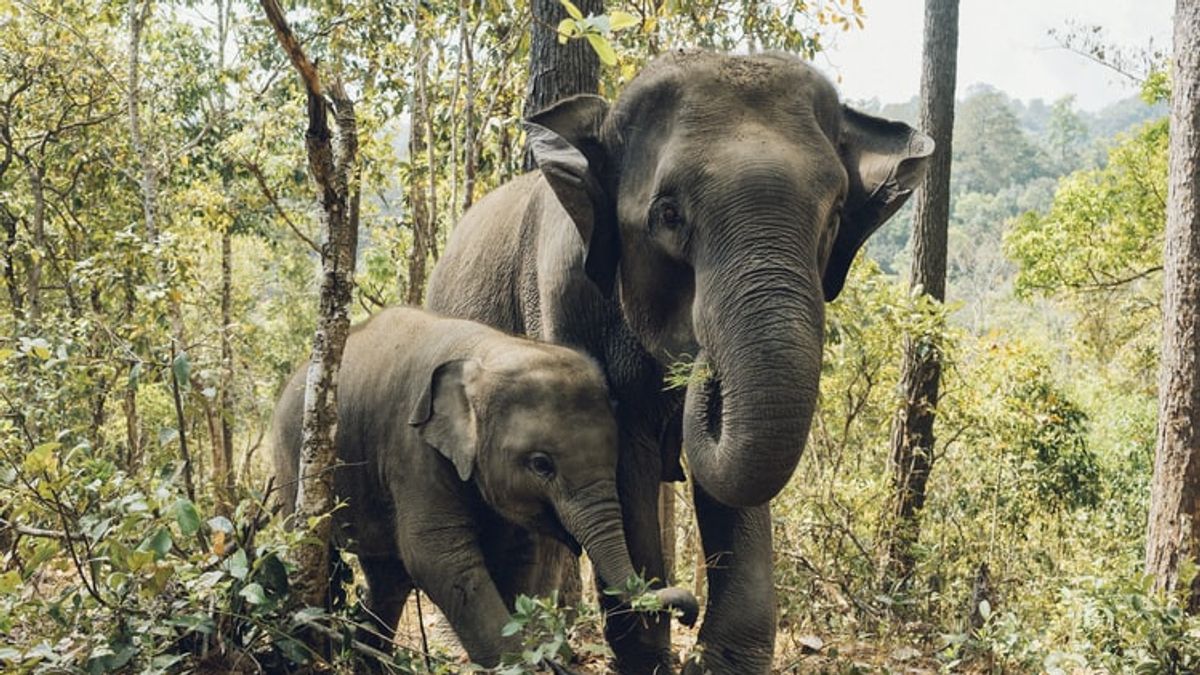JAKARTA - The death of an elephant in Kerala, India has angered netizens. Moreover, the cause of death of the elephant which was known to be pregnant was due to eating pineapple fruit filled with firecrackers.
As a result of a wave of anger by netizens, social media timelines were also filled with the hashtag #RIPHumanity as a form of anti-animal violence campaign in India. Moreover, elephants, including sacred animals in Hindu mythology in India.
Reporting from The Guardian, the discovery of a wild elephant that was found dead standing in a river in Silent Valley National Park in Palakkad district, occurred last week. The poor elephant, who was later found out to be pregnant, died from an explosion wound in its mouth.
News of the elephant's cruel death prompted more than 2 million people worldwide to sign a petition demanding justice for the elephant's death. From Bollywood stars to top politicians and CEOs of companies speak up. Bollywood actor Akshay Kumar called the elephant's death "heartbreaking, inhuman and unacceptable".
In a tragic incident in Palakkad dist, a pregnant elephant has lost its life. Many of you have reached out to us. We want to assure you that your concerns will not go in vain. Justice will prevail.
- Pinarayi Vijayan (@vijayanpinarayi) June 4, 2020
However, this problem took a turn for the worse after right-wing Hindu nationalists raised the issue of religion. They blame the Muslim community for deliberately killing the elephant.
Maneka Gandhi, a member of the ruling Hindu Bharatiya Janata Nationalist Party (BJP), alleges that the elephant was killed in the Malappuram district. The district has 70 per cent Muslim population, although the site of the dead elephant is more than 50 miles west of the Velliyar River in Palakkad.
“Malappuram is famous for such incidents, it's the most violent district in India. For example, they dump poison on the road so that 300-400 birds and dogs die at once, ”said Gandhi.
Animal Torture CaseMost in Indian states like Assam, Kerala, Rajasthan and Tamil Nadu are home to many elephants. According to a World Animal Protection report, India is considered the "birthplace of tame elephants for human use", a practice that began thousands of years ago.
In South India, elephants are also rented out during religious festivals for human-heavy parades and processions, including weddings and the opening of shops and hotels. They traveled long distances in open vehicles and walked the tarpaulin roads under the scorching sun for hours.
But in 2018, a shocking video showed an animal handler mercilessly beating an elephant in Jaipur. The video shows him attacking an elephant with an ax while another man repeatedly attacks the elephant with a stick before his legs are tied and set on fire.
Not only elephants, wild animals such as monkeys are also targets of violence. Still in 2018, eleven monkeys were found killed near National Highway 8, about 66 km from Jaipur, Rajasthan. Forestry Department authorities said the monkeys were beaten with sticks and doused with acidic chemicals.
In fact, it is reported, not only physical violence. Some cases also show that there is an act of rape of animals such as dogs and cows.
There are many more cases of animal abuse in India. Not only in India but several countries around the world. However, that does not mean that India does not have laws for perpetrators of violence against animals.
The Indian government has laws covering animal protection, namely the Animal Cruelty Prevention Act 1960 (amended to the Indian Animal Welfare Act in 2011) and the Wildlife Protection Act 1972. These laws prevent animals from being subjected to violence both in the wild and attempted for cosmetics.
The English, Chinese, Japanese, Arabic, and French versions are automatically generated by the AI. So there may still be inaccuracies in translating, please always see Indonesian as our main language. (system supported by DigitalSiber.id)













